10 Silent Signs of a Weak Heart: Spot Them Early!
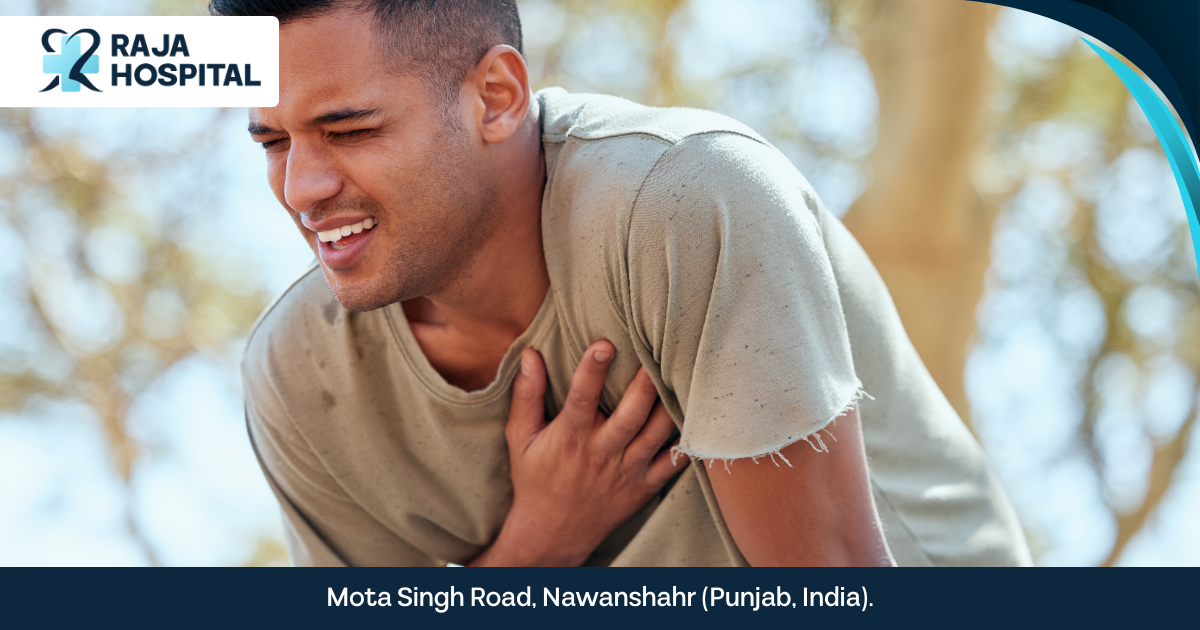
REVIEWED BY DR. Raghav Vishesh Lumb (DM Cardiology) on 16th April 2025.
You’re sitting at home, watching TV. Everything feels normal. Then suddenly, your chest feels tight. You’re a little out of breath. Maybe your left arm feels heavy. You think,
“It’s probably just gas… I’ll sleep it off.” But what if it’s not? What if it’s your heart whispering, “Hey… something’s wrong.”
Here’s the truth: most heart problems don’t come with sirens. They come silently. Slowly. Softly. And when we ignore the early signs, we give the problem time to grow. Many people say, “I wish I had known earlier.” They don’t realize that their body is sending small signals every day. That’s the pain point. We miss the signs. We delayed the visit. And sometimes, we lose the chance.
But guess what? You don’t need to wait for a heart attack to act. This blog is your simple guide, written like we’re just talking, to help you catch those silent signs early. Because when you know what to look for, you can stop a big problem before it even starts.
Why Recognizing Symptoms Early Can Save Lives
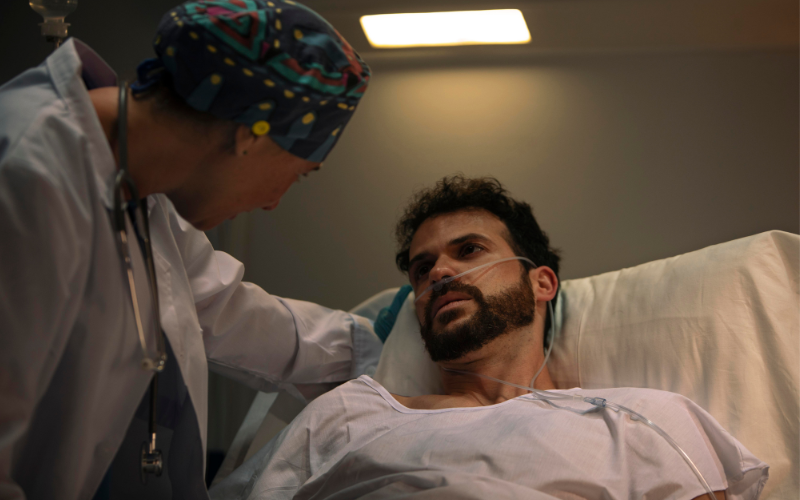
Many heart attacks don’t happen suddenly like they do in movies. They build up, silently, over months or even years.
Your body gives clues. If we listen, we can act early and stop a heart attack before it even begins. Just like how you can prevent a fire by noticing smoke early, you can prevent heart failure by noticing the signals.
Heart Disease is the No.1 Killer, But It’s Preventable
Heart disease kills more people in India than any other disease. But here’s what most people don’t know: It’s also one of the most preventable diseases in the world.
Let’s keep it simple. Your heart is like a pump. It pushes blood to every part of your body. But if this pump gets weak or blocked, problems begin.
- Too much fat or cholesterol can block pipes (your blood vessels).
- Less oxygen reaches your brain, lungs, and muscles.
- And suddenly, one day, the heart can stop.
But you can change this. Eat better. Move more. Sleep well. And, most importantly, don’t ignore early signs.
Warning Signs to Know
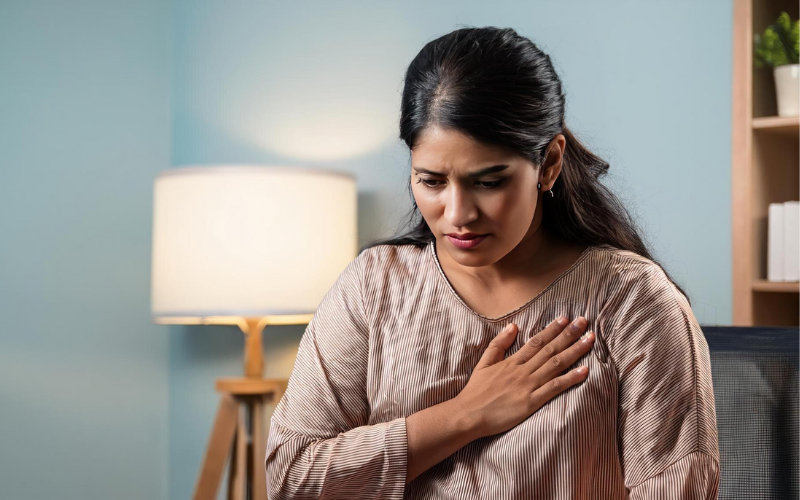
Your heart won’t always shout sometimes; it just whispers. Keep an eye out for these early symptoms. They may seem harmless, but if you notice two or more, don’t ignore them.
Look Out For:
- Chest pressure or tightness
- Short breath even while resting
- Sudden tiredness or weakness
- Irregular heartbeat
- Swelling in the legs or ankles
- Unexplained sweating
- Lightheadedness or fainting
- Pain in the left arm or jaw
- Trouble sleeping or loud snoring
- Feeling like something’s “not right”
The 10 Most Common Symptoms of Heart Disease
Before you say “it’s nothing,” take a few minutes to understand these 10 symptoms. They’re not always painful or dramatic, but they could be life-saving if caught early.
1. Chest Pain or Discomfort
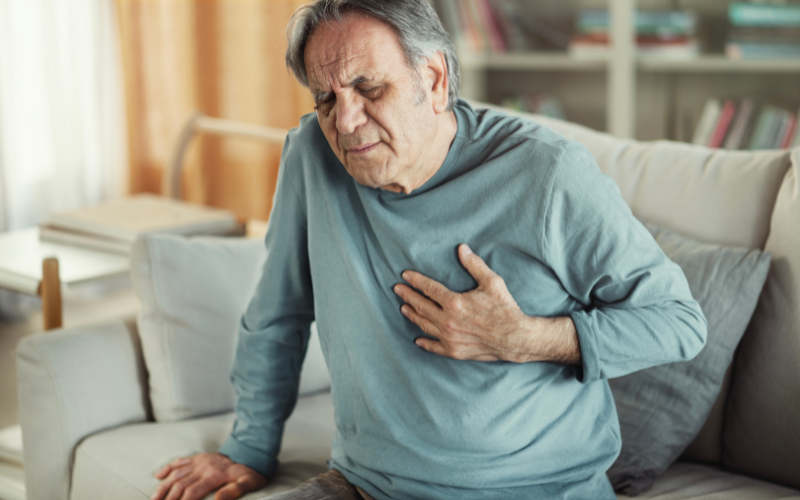
No two hearts are the same. Some people may feel chest pain. Others may feel only tired or dizzy. That’s why you need to pay attention to your body.
If something feels “off,” it might be more serious than you think.
What it feels like:
A pressure, tightness, squeezing, or heaviness in the chest. Not always sharp pain, it can feel like something heavy is sitting on your chest.
When it’s serious:
- The pain lasts more than a few minutes
- It comes back again and again
- It happens during rest or light activity
- It spreads to your arm, neck, or back
What to do:
- Don’t wait. Call a doctor.
- If it’s sudden and strong, call emergency help immediately.
- Sit down, stay calm, and don’t ignore it.
2. Shortness of Breath
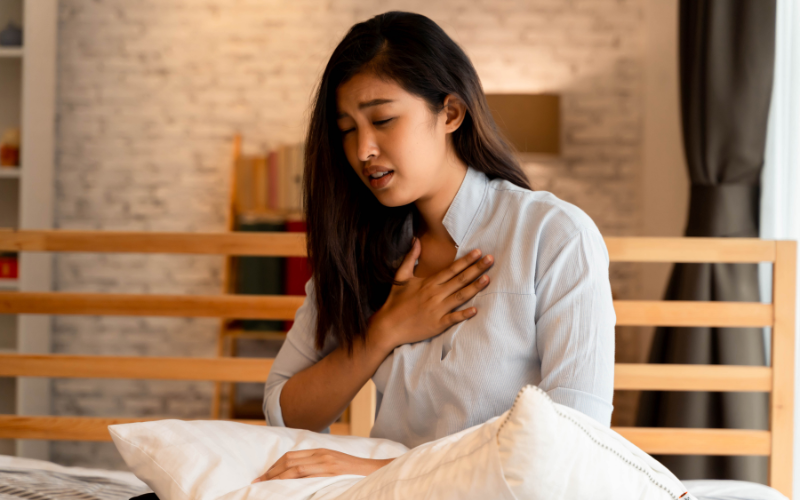
Your heart and lungs work together. When the heart is weak, the lungs don’t get enough blood. That means you may feel like you can’t breathe deeply. Even while resting? That’s a warning:
- If you’re sitting still and still feel breathless
- If you wake up gasping for air
- If climbing stairs leaves you winded, more than usual
These are signs your heart may not be pumping properly.
3. Fatigue or Weakness
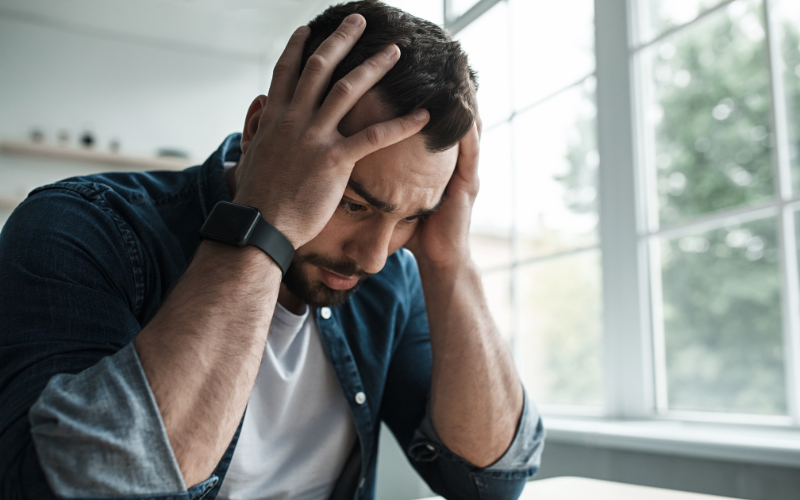
Do you feel tired all the time? We’re not talking about regular tiredness from work. This is deep exhaustion, he kind that makes you want to lie down after doing nothing. It means your heart isn’t sending enough oxygen-rich blood to your muscles and brain.
4. Pain in the Arm, Jaw, Neck, or Back

Not all heart problems show up in the chest. Sometimes, the pain appears in other places, especially on the left side.
Pay attention to if:
- You feel a dull ache in your left arm
- Your jaw hurts without reason
- You feel back pain that feels “deep” and unusual
- The pain comes and goes
These are often referred to as pains from your heart.
5. Dizziness or Lightheadedness

A lot of people think, “Oh, maybe my sugar is low.” But dizziness can also mean your heart isn’t pushing enough blood to your brain.
If you feel faint, especially while standing, walking, or doing nothing, your heart might be struggling.
6. Swelling in Feet, Ankles, or Legs
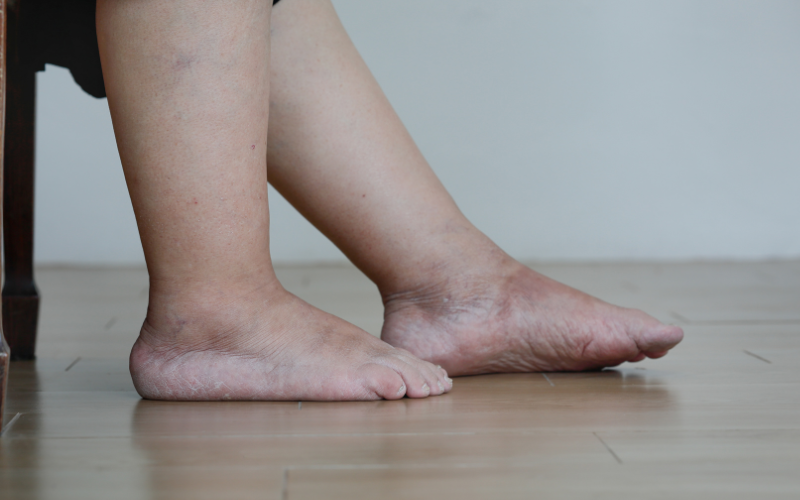
When your heart is weak, it can’t pump blood fast enough. This causes blood to collect in your legs. The kidneys also can’t get rid of extra water properly.
So your feet, ankles, and legs swell up. If your socks leave deep marks on your legs or your shoes feel tight, take note.
7. Irregular Heartbeat
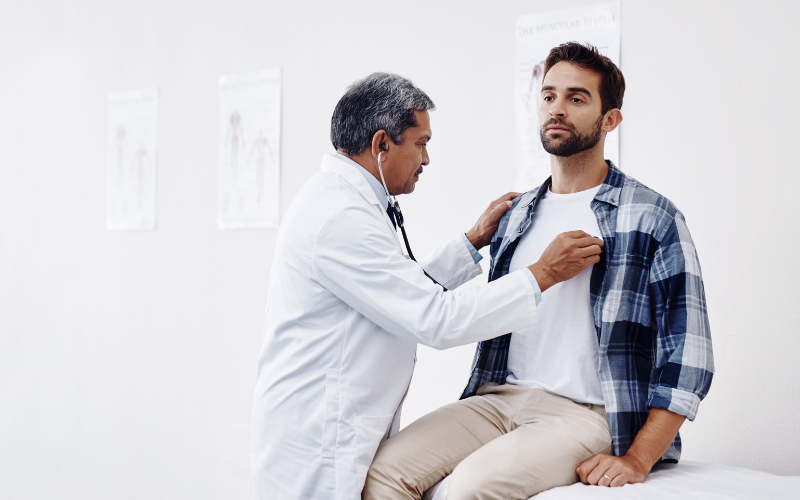
Your heartbeat should feel steady, like a drum. But if it’s too fast, too slow, or skips a beat, that’s called an arrhythmia.
Fluttering? Pounding? Skipping?
When to worry:
- Your heart races for no reason
- You feel sudden flutters in your chest
- You feel dizzy with the irregular heartbeat
- You faint or almost faint
Don’t wait. Let a doctor check it.
8. Nausea, Indigestion, or Heartburn

A heart attack can feel like gas or acidity. That’s why so many people ignore it.
If you feel:
- Sudden nausea without any stomach problems
- Burning in the chest that doesn’t go away with antacids
- A “full” feeling even if you didn’t eat much
It could be your heart. Especially if you’re sweating too.
9. Sweating Without a Reason
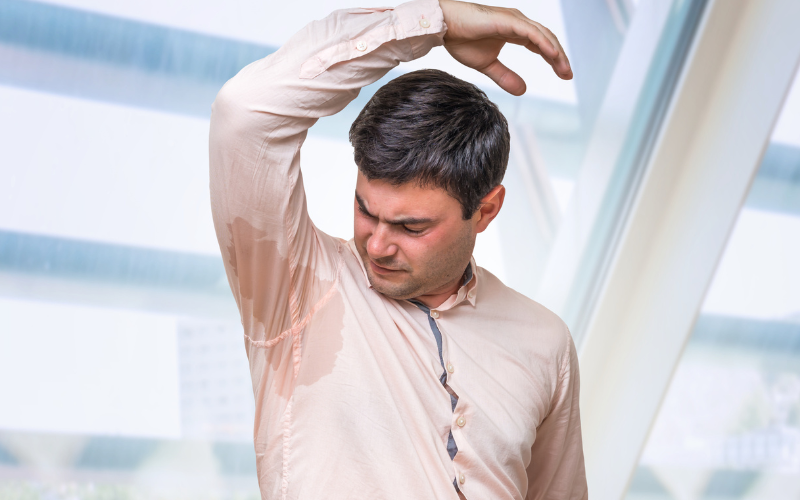
Not sweating from heat or exercise, but cold sweat, dripping without a reason.
If you feel:
- Cold sweat while sitting
- Sweat with chest pain or breathlessness
- Sweat + nausea + fatigue
These can be signs of a heart attack. Don’t ignore it.
10. Snoring or Sleep Trouble
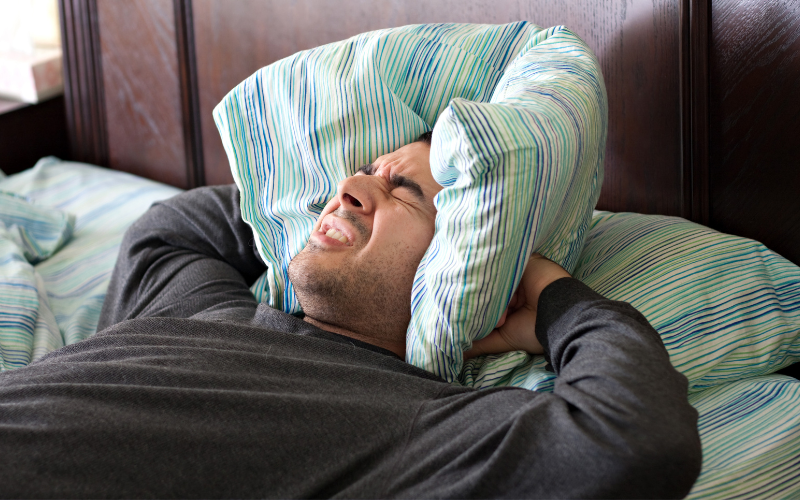
Loud, gasping snoring isn’t just annoying, it could be dangerous. If you snore loudly or stop breathing for seconds at night (a condition called sleep apnea), your oxygen level drops. This puts stress on your heart.
If you:
- Snore heavily
- Stop breathing for seconds at a time
- Wake up feeling tired
- Have headaches in the morning
It’s time to get your heart checked.
What to Do If You Notice These Signs
If one sign shows up once, maybe it’s nothing. But if you notice two or more signs regularly, your body is warning you. Don’t guess. Don’t Google. Get checked.
One Sign Might Be Okay, But Two or More? See a Doctor
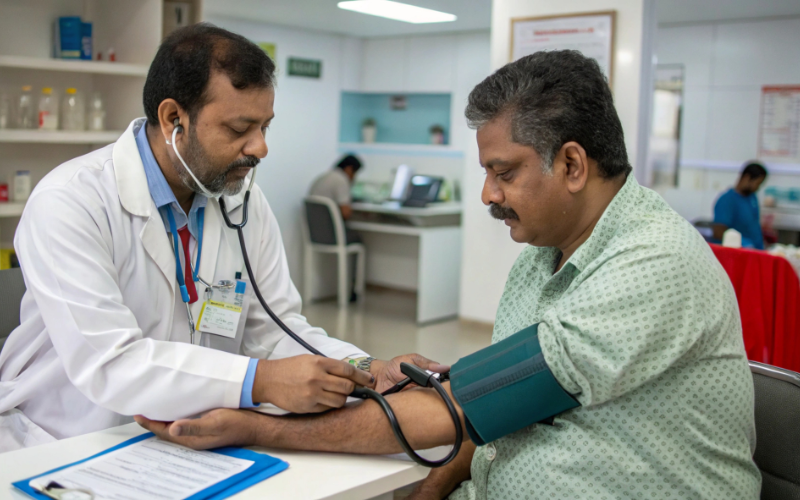
If you feel even two or more of the following symptoms together, it’s time to book a check-up:
- If you feel chest discomfort along with cold sweat or dizziness
- If you notice breathlessness even while lying down or sitting still
- If your legs or ankles are swelling and you feel extremely tired
- If your heartbeat is suddenly fast, fluttering, or feels like skipping
- If you’ve been feeling tired every day without any reason
Don’t wait for the signs to get worse. Early diagnosis can save you from a major heart problem later.
Men and Women Can Have Different Signs
Sometimes, we assume heart attacks or heart problems will feel the same for everyone, but they don’t.
Here’s the truth:
- Men often get the classic signs, like chest pain, arm pain, and shortness of breath.
- Women may have more subtle signs, like tiredness, nausea, dizziness, or indigestion.
That’s why many heart issues in women go unnoticed or misdiagnosed.
If you’re a woman and feel “off” lately—even if you don’t have chest pain, please don’t ignore it.
When You Should See a Doctor Fast
If you feel these symptoms, rush to the hospital immediately:
- Chest pain lasting more than 5 minutes
- Pain in the jaw or left arm
- Cold sweat and nausea
- Shortness of breath while lying down
- Sudden swelling in the legs or ankles
- Irregular heartbeat with fainting
Note: Heart attacks can be survived if treated quickly. Many lives are saved when patients reach the hospital within the golden hour, the first 60 minutes.
How to Keep Your Heart Healthy

You just need to take care of it daily.
Here’s how:
- Eat fresh fruits and vegetables
- Avoid fried and salty foods
- Walk or exercise for at least 30 minutes
- Quit smoking
- Control your BP, sugar, and cholesterol
- Sleep well at night
- Take breaks to relax and breathe
- Visit your doctor regularly for check-ups
Frequently Asked Questions
1. Can young people get heart disease?
Yes. Even people in their 20s or 30s can develop heart problems, especially if they have stress, bad eating habits, smoke, or have a family history.
2. Is chest pain always a sign of a heart attack?
Not always. But if it feels tight, heavy, or spreads to your jaw or arm, it’s better to be safe than sorry.
3. What does a heart problem feel like?
It can feel like chest pain, shortness of breath, tiredness, dizziness, or even back or jaw pain. Sometimes there are no clear signs at all.
4. Do women have different heart disease symptoms?
Yes. Women often experience tiredness, lightheadedness, or indigestion instead of chest pain.
5. Is shortness of breath a heart problem?
Sometimes. Especially if it happens when you’re resting or lying down, it may be a sign of heart trouble.
Struggling with same?
Book Your Appointment With Our Expert Doctors

Conclusion
Your heart gives you signs when something is wrong. It doesn’t always shout, it whispers through tiredness, swelling, or a strange feeling in your chest. But many people ignore these signs, thinking it’s just stress, age, or a busy day.
Even small signs like shortness of breath or feeling dizzy (especially when it is out of the ordinary for you) may indicate that your heart may need attention. If you notice 2 or more of these signs we just mentioned, it is time to be proactive.
You do not have to wait for something significant to happen. You can be active now, protect your heart now, by listening to your body and going for medical care.
If you ever feel unsure, you can always reach out to us at Raja Hospital. We’re here to help with heart check-ups, tests, and expert advice, whenever you feel ready. Sometimes, one small step is all it takes to prevent something big.
